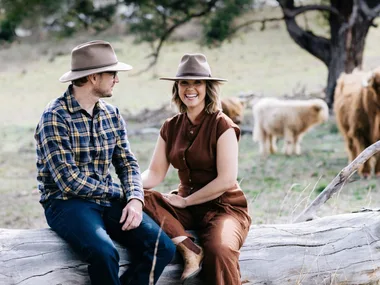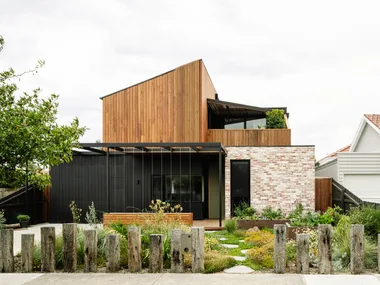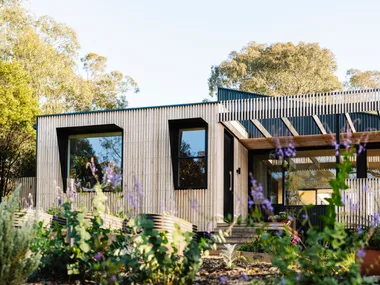For their first wedding anniversary, Chris Shannon gifted his wife, Margot, an appointment with a landscape gardener. When they were married in 1992, the pair had moved into the main house on the Shannon family property of Talmo – a merino wool farm located in Bookham, NSW, about 30 minutes’ drive west of Yass – and the gardens were a blank canvas. Margot lovingly created the cottage garden over more than three decades with her husband, filling it with verdant plantings that rise to waist or head height, dwarfing the owners on occasion.
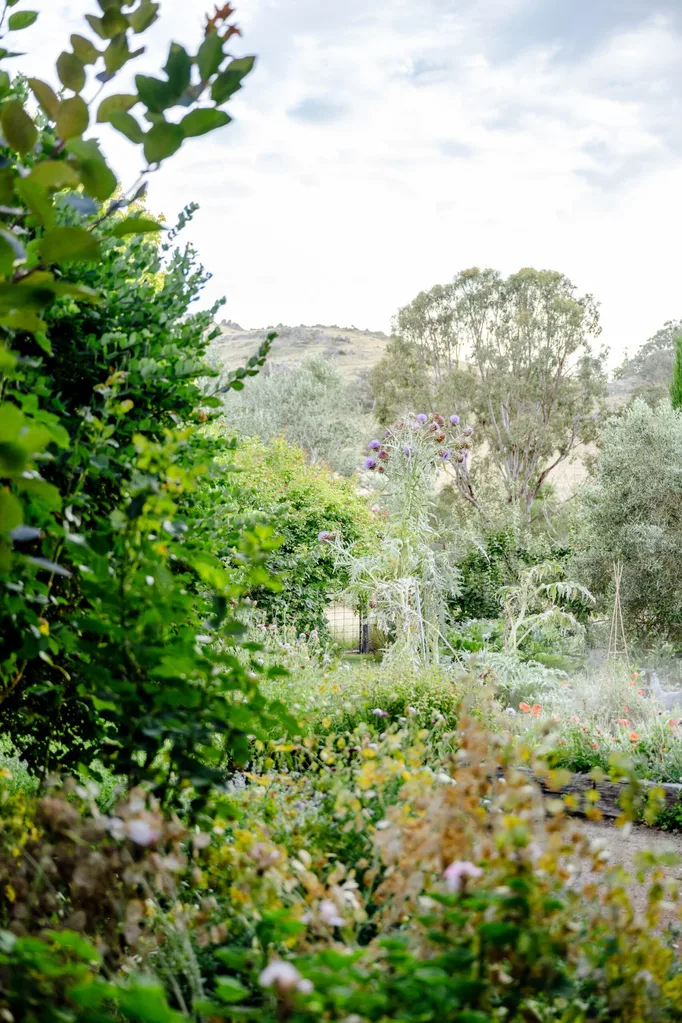
“I think a garden makes a home,” says Margot. “My father was a landscape contractor in Canberra and I had always grown up with a big garden. When I moved here, it was so much hotter than Canberra and the garden was small, with narrow beds and lots of concrete edges and paths. We wanted to establish a green haven around the house that would be an escape from the hot, dry paddocks.”
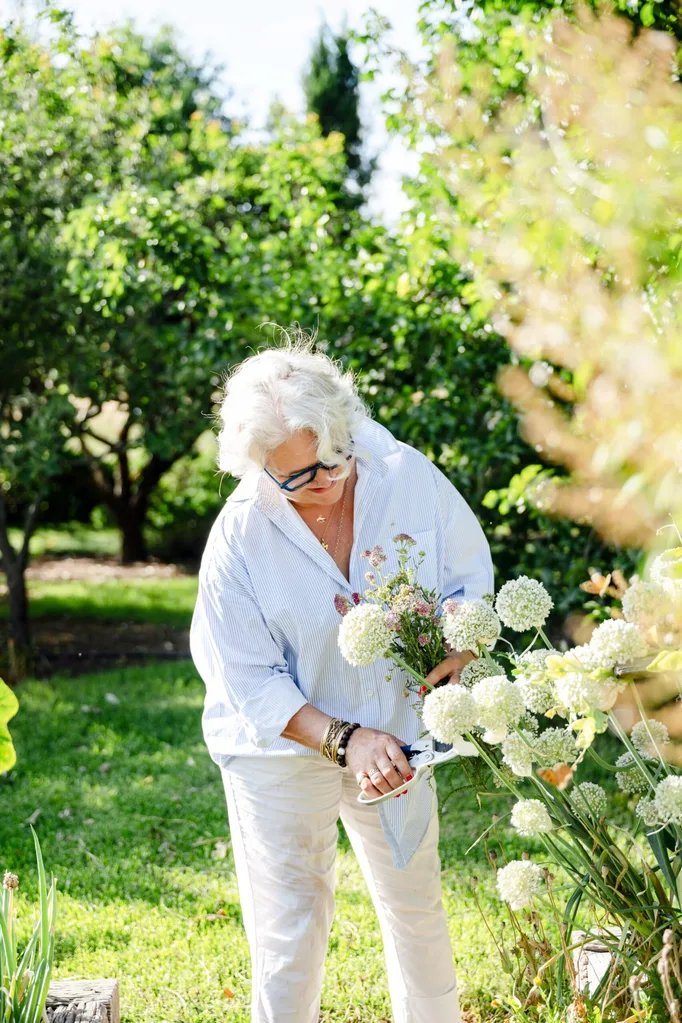
Designing a cottage garden in Australia
Over the years, various landscape architects and designers, including Michael Bligh from Michael Bligh & Associates and Lisa Walmsley from Dog Trap Design, helped the couple come up with a functional layout that would allow for the practicalities of driveways and parking, without obstructing the beautiful surrounding views of the hillsides.
A pathway edged with buxus, prunus and teucrium was created, leading to the front verandah and also a pergola Chris built. Big beds of anemone, catmint, love-in-a-mist, roses, salvia, sedum and self-seeded valerian soften and cool the home.
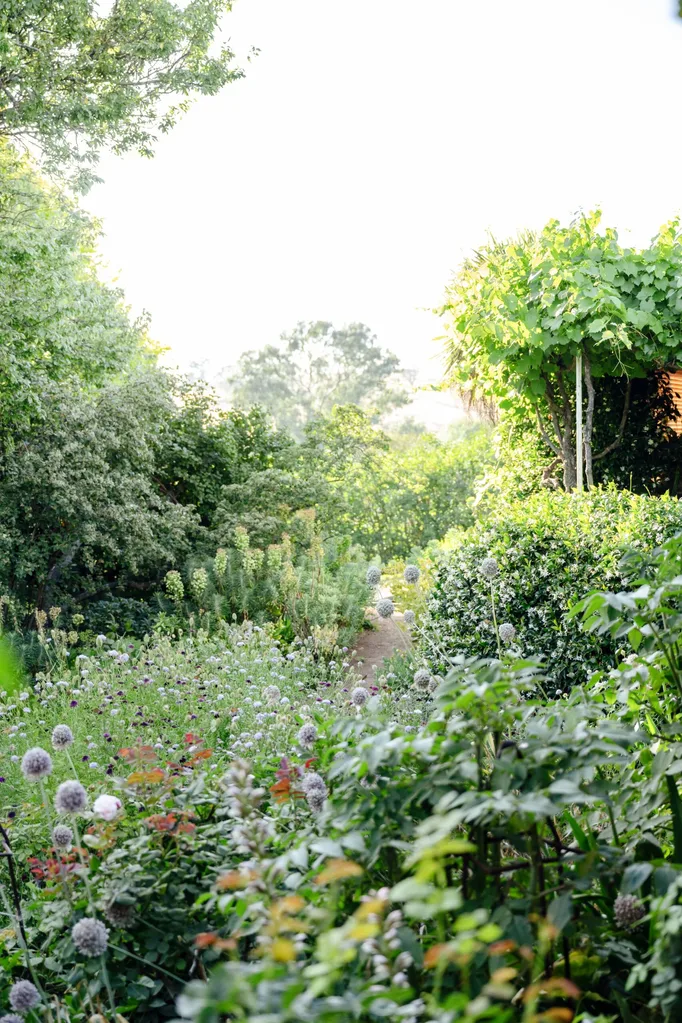
Her dad (now 92), has been a constant source of inspiration – and supplies. In the early days of her marriage, Margot would help in his landscaping business over summer. “Instead of getting paid, I would put in a big order for plants, which suited us well,” she says. Many of the trees and hedges came from this arrangement, while other plants have been “begged, borrowed and stolen” from people’s gardens, including a lilac hedge. “It was planted from suckers from my grandmother’s garden that my mother then had in her garden. It flowers around my birthday and our wedding anniversary, which is lovely; I also carried lilac in my wedding bouquet.”
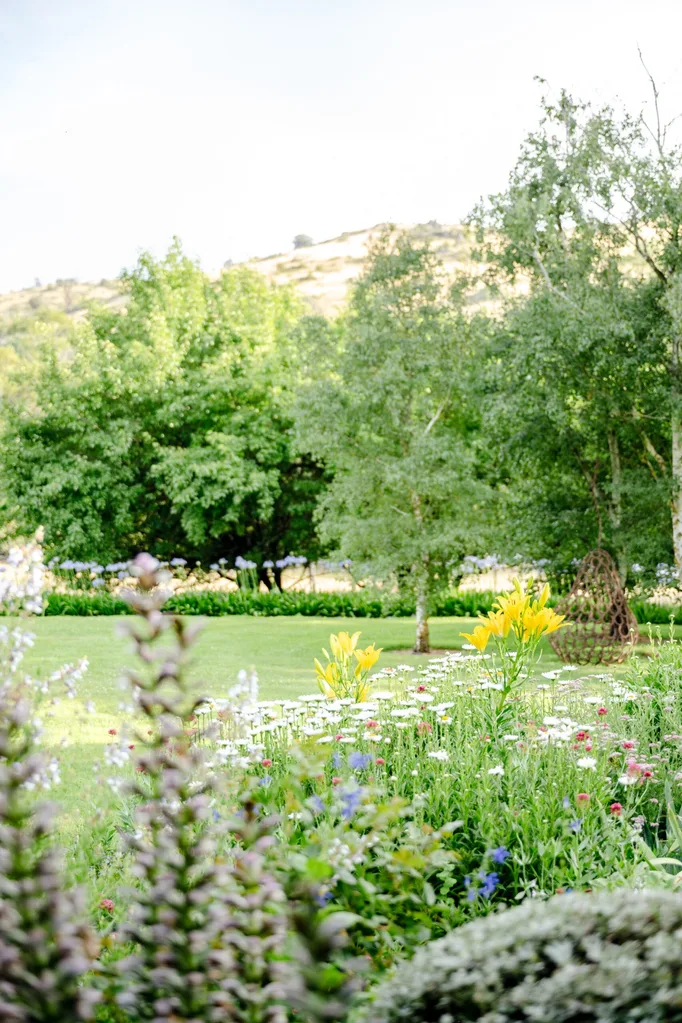
These days, Margot is busy running her homewares store, Merchant Campbell, in Yass. But whenever she has the chance, she’s out there deadheading, pottering and weeding, basking in the bird call of blackbirds, fairy-wrens, grey shrike-thrush and sparrows, and the “fantastic racket” of the frogs at night.
“As a child, visiting my great-aunts and grandmothers, we would always go for a walk around the garden”
Margot
How to structure a cottage garden
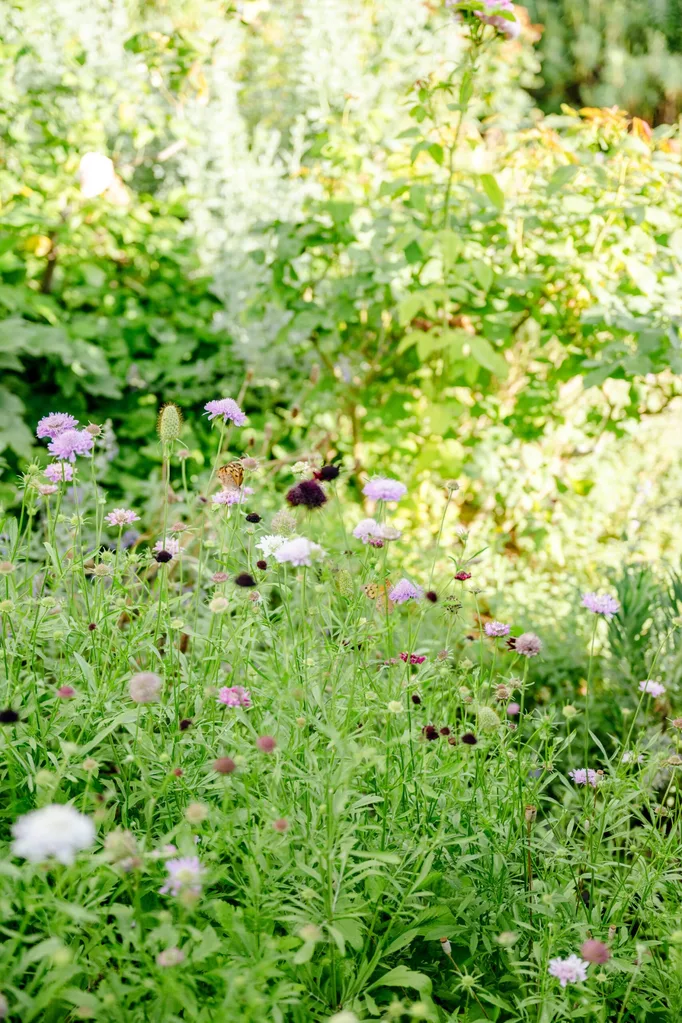
The rambling garden is divided into zones by hedges, including feijoa, formal box, lilac, May bush and a tough, tall bay hedge. There’s a veggie patch full of asparagus, herbs, rhubarb, shallots, spinach and strawberries, plus a fruit orchard and chook yard as well as an entertaining zone with a fire pit, gazebo, lounge setting and pool.
The cottage itself is decorated with wisteria which grows along the verandah’s edge and bursts into bloom seasonally. A natural dirt path tracks its way through the jungle that is currently full of colourful flowers that bask in the sun in pretty pink, happy yellow and fresh white.
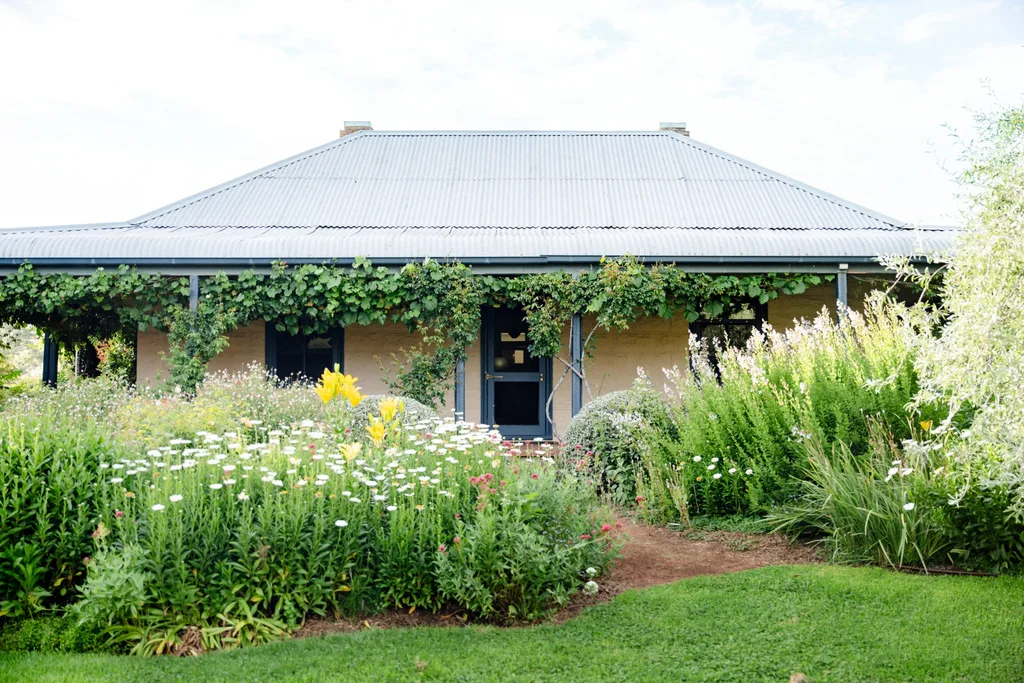
“It’s not a grand garden – it’s a rambly country garden, a shelter and an oasis”
Margot
Low maintenance plants
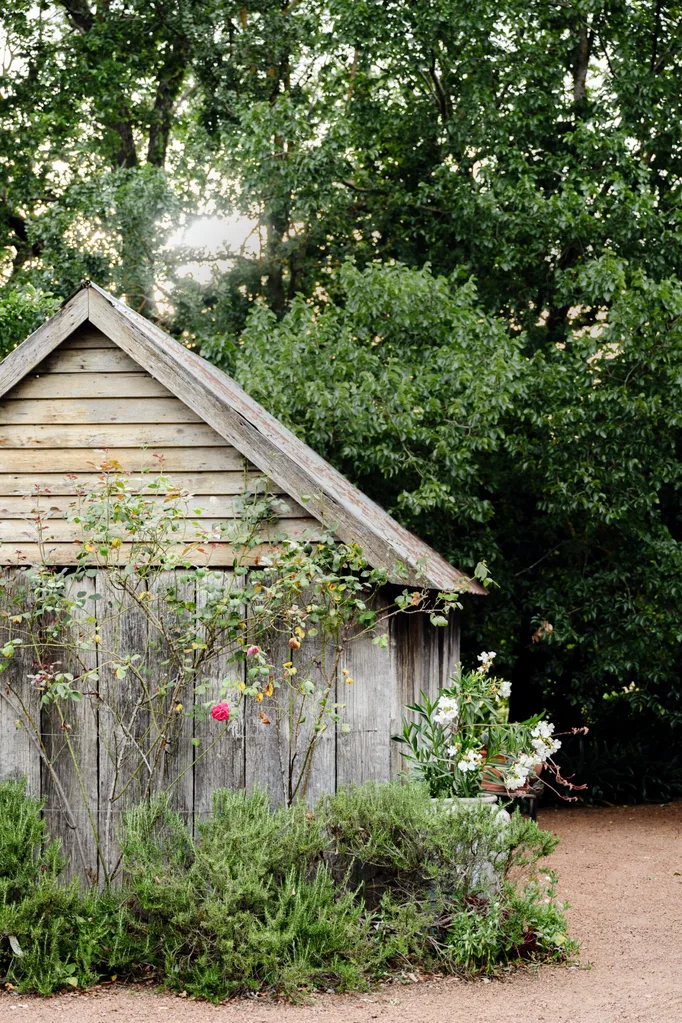
The plants in this garden, such as roses, were chosen for their ability to withstand the south-west slopes’ scorching summers and frosty winters. “The whole theme is rinse and repeat,” explains Margot of her approach to gardening. “If it works well, you’ll see it again elsewhere. I don’t have time for mollycoddling; I try to teach things to have deep roots and cope with the calcium-dense bore water.”
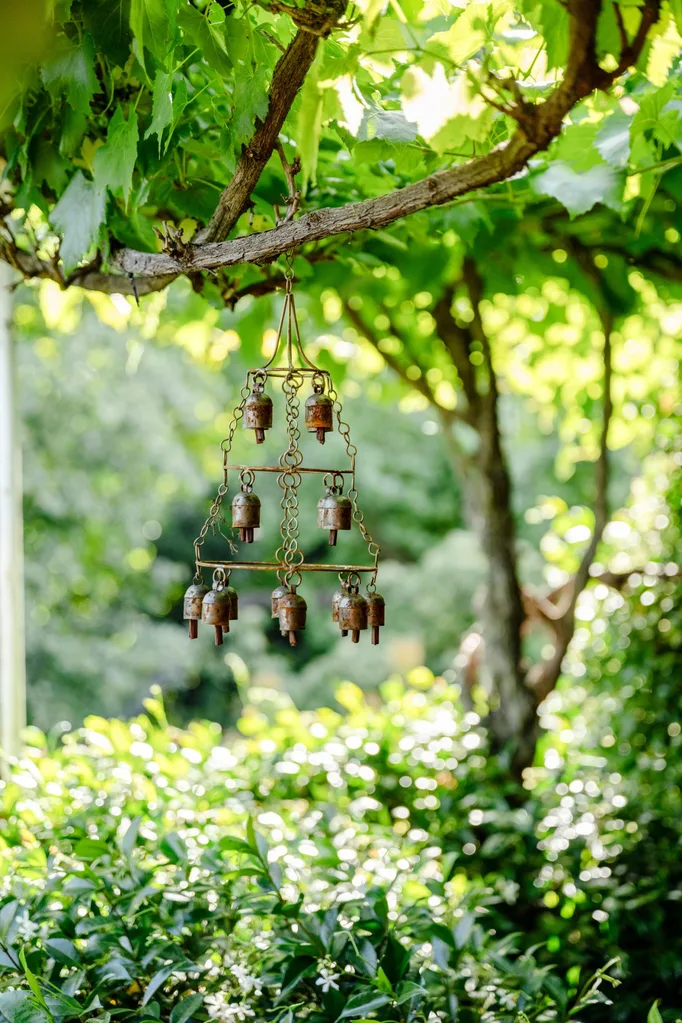
“You can look from the garden to the hills around and never feel like you’re anywhere but on the south-west slopes of New South Wales; you’re very much in country”
Margot
Cottage garden planting palettes and flowers

Acanthus
Texture and height
Acanthus spikes, also known as bear’s breeches, have large lobed leaves and provide textural interest in the garden.

Pollinators
Bees and butterflies
The couple’s flower garden is popular with a host of different types of butterflies that flit between the flowering plants. They are natural pollinators.

Red roses
Beautiful and sweet smelling
A red-flowering rose is a highlight and stands out against the bright foliage.

Pink roses
Beautiful and sweet smelling
Delicate pink roses bloom among the verdant greenery, adding a soft touch.

White daisies
Wisps of whimsy
White daisies stand to sharp attention in the garden in front of the verandah.

Artichoke flowers
Edible plants
Rather than being eaten, the artichoke plants have been left to go to flower.

Guineafowl
Natural insect controllers
Six resident guineafowl help to eradicate insects, and also add character and a sense of fun to the couple’s garden.

Pink and purple flowers
Colourful meadows
A collection of flowers grow together and create a meadow-like effect.
 Photography: Monique Lovick
Photography: Monique Lovick
